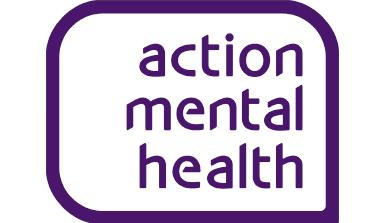Imposter Syndrome In The Workplace
Mental Health / Workplace HealthA recent survey found that 62% of employees experience symptoms of imposter syndrome, whilst 82% of women in business report feeling like a fraud at work. If you’ve ever felt like you don’t belong, have doubted your own competency or have felt overcome by self-doubt, know that you’re not alone.
What is ‘imposter syndrome’?
Imposter syndrome refers to feelings of inadequacy and self-doubt that persist despite objective successes. This phenomenon is particularly common in the workplace, with nearly two-thirds of employees expressing doubt related to work accomplishments or feeling inadequate compared to colleagues.
Symptoms of imposter syndrome can include:
- Low self-confidence at work
- Undervaluing contributions
- Attributing successes to external factors
- Sensitivity over minor mistakes
- Self-doubt
- Fear of letting colleagues down
- Burnout
If any of these feelings sound familiar, you’re not alone. Following the 2020 pandemic, 47% of organisations noted a rise in employee imposter syndrome, with remote work presenting fewer opportunities to connect and celebrate success, exacerbating feelings of isolation and self-doubt. Research has also shown younger people to experience greater feelings of workplace fraudulence, with 86% of 18-34 year olds reporting feeling that they don’t deserve their jobs.
Whilst rates of professional self-doubt have grown universally in the past few years, certain industries seem to be particularly at risk. Specifically competitive sectors including creative arts, law, healthcare, journalism, IT and public services have been found to exhibit particularly high levels of imposter syndrome.
Overcoming imposter syndrome in the workplace
Imposter syndrome can cause significant damage to employees’ personal and professional lives, with research showing that employees with these feelings are less likely to career plan and move into leadership positions whilst being more likely to experience job dissatisfaction and burnout. But feelings of fraudulence don’t have to last forever. Here are three actionable steps anyone can take to turn around self-defeating thoughts:
1. Assess the evidence
When you start to notice that little voice creep in and tell you that you’re not good enough, it’s time to get out your notebook and challenge that inner critic. We recommend making a simple 2-colomn list- on one side you can write down evidence that supports your inner critic, on the other side write down evidence which disproves your inner critic. Whilst challenging thoughts can also feel factual, taking this objective approach is a helpful way to combat self-doubt by acknowledging and reflecting on proof of your own competency.
2. Keep an achievements log
As a society, we’re often hard-wired to focus on our failures rather than celebrating our successes. Whilst it may feel uncomfortable to acknowledge your strengths, doing so has been proven to boost resilience and self-esteem. We recommend keeping a daily record of the compliments you receive and the achievements you make. At the end of each week, set time aside to reflect on what has gone well.
3. Accept positive feedback
Another way to reinforce your own strengths and silence your inner critic involves learning to consciously accept positive feedback. Whilst it can feel instinctive to deny or dismiss praise from others’, we challenge you to instead say “thank you” and give yourself the opportunity to internalize others’ positive perspectives.
How can managers support their teams with reducing imposter syndrome?
Individual employees can take meaningful and powerful steps to overcome self-doubt, but to truly tackle imposter syndrome, organizational change is often needed. As a manager or leader, you can uplift your team and reduce levels of imposter syndrome with the following strategies:
1. Leverage strength based evaluations
Imposter syndrome can be an indicator that an employee feels overwhelmed by their responsibilities or needs to be reminded of their strengths. Utilise strength based evaluations to create frequent dialogues about the employees strengths, using concrete evidence to support your praise and positive feedback. During these conversations, set weekly and monthly goals that can be worked towards and reviewed collaboratively to avoid overwhelm. These conversations can also be an opportunity to identify where an employee’s areas of opportunity and provide additional training and support to further develop their strengths and skill set.
2. Make it safe to ask for help
When an employee is feeling fraudulent, as if they don’t deserve their job or as though they’re incompetent compared to colleagues, it’s often difficult for them to admit to needing support and guidance with work-related tasks. Instead, many employees will struggle in silence, overworking themselves to conceal any self-perceived flaws. The first step in creating a safe space for employees to ask for help involves examining your own beliefs as a manager.
Do you treat your employees as if they are capable and competent? Do you trust them to overcome challenges? Challenging your own beliefs creates a means to communicate that you believe in your staff and want to support them to succeed. You can also create a safer environment by acknowledging your own vulnerabilities and creating a dialogue surrounding the stressors and impact of the work your team do.
3. Prioritise staff mental health in the workplace
Research has consistently found that people who struggle with imposter syndrome are more likely to experience mental health issues including anxiety and depression. When these individuals experience failure, they often suffer from low self-esteem and feel dissatisfied with their lives and careers.
Therefore, supporting mental wellbeing is central to ensuring that staff are able to build self-efficacy and positive purpose from their work lives. Some ways to promote positive wellbeing within your team include investing in an organizational wellbeing service, having accessible signposts to expert help and ensuring that regular staff wellbeing trainings are available to all employees.








































































































































